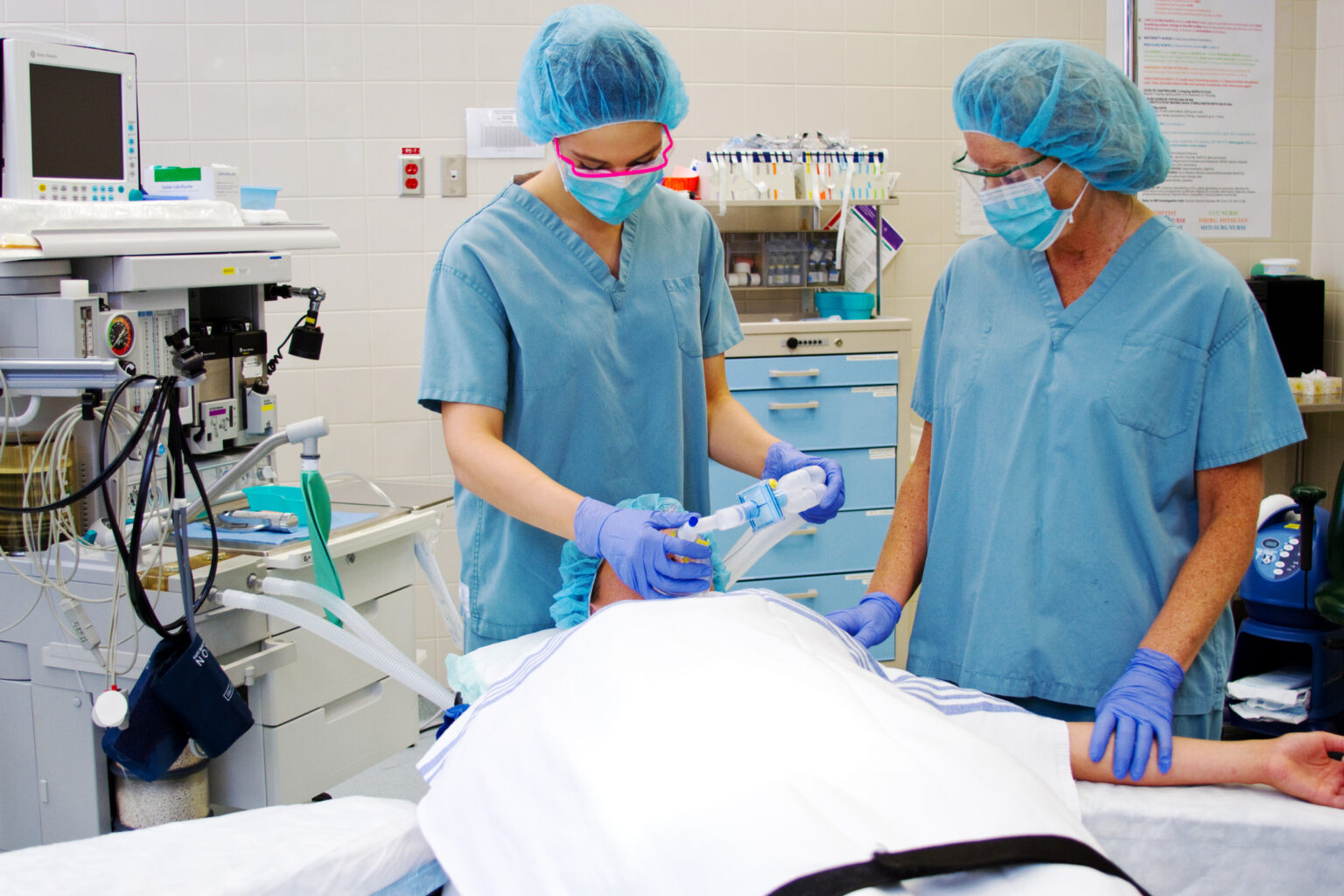Nurses play a critical role in ensuring successful surgical outcomes and patient recovery. Their expertise, dedication, and compassion are invaluable throughout the entire surgical process.
From preparing patients before surgery to managing post-operative care, nurses provide support that promotes safety and healing. They collaborate with surgeons, monitor vital signs, and educate patients for better outcomes.
Their efforts minimize complications, reduce recovery time, and enhance patient satisfaction. In this article, we’ll explore the essential contributions nurses make in surgery, focusing on their impact at every stage of care.
Setting the Stage for Success with Pre-Surgical Preparation
MedlinePlus notes that pre-op is the essential checkup before surgery, typically scheduled within the month before your procedure. During this visit, your health history is reviewed, and a physical exam is conducted. Ensure your primary care provider sends reports to your surgeon or hospital for a smooth process.
Nurses play a critical role in ensuring patients are fully prepared for surgery by focusing on various factors:
- They carefully review patients’ medical histories, checking for allergies or conditions that could affect surgery.
- Nurses address both physical and emotional needs, helping ease patient anxiety and improve cooperation.
- By clearly explaining the procedure, they help reduce fear and confusion, making the patient feel more comfortable.
- Pre-surgical instructions, such as fasting or adjusting medications, are verified to ensure compliance and safety.
- Monitoring vital signs ensures that patients remain stable and ready for surgery.
Additionally, nurses work closely with the surgical team to ensure all necessary equipment is in place, which reduces the risk of complications. Their communication with patients fosters trust, which is essential for successful surgical outcomes.
Do nurses provide pre-operative patient education?
Yes, nurses offer education on surgical procedures, recovery expectations, and potential risks. They clarify pre-operative instructions, like when to stop eating or taking certain medications. Their education helps patients understand and prepare mentally for surgery.
Intraoperative Monitoring for Patient Safety
During surgery, nurses check patients’ vital signs and keep them stable. They collaborate closely with anesthesiologists, surgeons, and other team members to keep patients safe. They can immediately detect issues by monitoring heart rate, blood pressure, and oxygen levels.
NIH states that surgical site infections (SSIs) occur in 1%-3% of surgeries, with abdominal procedures showing higher rates. Studies reveal significant variations in SSI incidence depending on the operating conditions and surgical type.
Nurses play a crucial role in preventing these infections through proper sterilization, monitoring, and patient education during recovery.
They manage instruments, assist surgeons, and provide critical updates about the patient’s condition. Their quick thinking and attentiveness are crucial during unexpected events or complications. These efforts protect patients and contribute to seamless surgical experiences.
What role does nurse collaboration with anesthesiologists play?
Nurses work closely with anesthesiologists to monitor anaesthesia levels during surgery. Throughout the process, they make sure the patients stay comfortable and stable. This collaboration is crucial for minimizing anesthesia-related risks.
Elevating the Quality of Nursing with Academic Excellence
Nurses with advanced academic training bring specialized knowledge and expertise to improve surgical patient care. Higher education prepares nurses to manage complex medical conditions and advanced technologies with confidence. Advanced degrees and certifications enable nurses to contribute to surgical planning and clinical execution with precision and expertise.
According to Wilkes University, advanced nursing education equips professionals with the skills to elevate surgical outcomes and patient recovery. Programs like the Master of Science in Nursing (MSN) focus on specialties such as surgical nursing, patient safety, and anaesthesia management. These specializations enable nurses to expertly support surgical teams and manage complex patient needs, ensuring patient safety.
For example, courses in anaesthesia, patient monitoring, and pain management are designed to reduce surgical risks. Graduates are better prepared to handle critical responsibilities, from ensuring precise medication dosages to monitoring patient vitals during surgery.
As per NurseJournal.org, BSN to MSN programs typically require 40 credits and take 36 months to complete. This rigorous education fosters a deeper understanding of surgical care, enabling nurses to manage challenges with confidence.
Many universities have introduced online programs that allow nurses to balance their education with their professional and personal lives.
Online BSN to MSN programs offer a flexible path for nurses to deepen their expertise in key areas. They provide a convenient learning environment for nurses to balance work and school commitments. Nurses enrolled in these online programs can apply their real-world experiences to their coursework and assignments.
What are the challenges of pursuing advanced nursing degrees?
Time management is often a challenge, as nurses juggle work, school, and personal responsibilities. Balancing these can be exhausting, but the long-term benefits of advanced qualifications make it worthwhile. Nurses can improve their expertise and career opportunities through dedication and support.
Guiding Patients Toward Recovery with Post-Operative Care
After surgery, nurses play a critical role in ensuring smooth recoveries for patients. They manage pain, monitor healing, and address potential complications early.
Educating patients on wound care, medication use, and mobility is a key responsibility. Nurses encourage physical activity to prevent blood clots and improve circulation. They offer emotional support, addressing fears or concerns patients might have.
Nurses ensure continuity of care and long-term recovery success by coordinating follow-up appointments. Their vigilance and compassion promote healing and prevent setbacks. Patients benefit greatly from nurses’ dedicated post-operative support.
How do nurses encourage patient mobility after surgery?
Nurses help patients begin gentle movement exercises to prevent blood clots and improve circulation. They provide guidance on walking, stretching, and sitting up to strengthen muscles and promote recovery. Gradual mobility increases overall recovery speed.
Building Trust and Reducing Anxiety with Human Touch
Surgery can be a daunting experience, and nurses provide much-needed emotional reassurance to patients.
As per Health, studies show that 13% to 47% of patients experience depression after undergoing surgery. Research reveals that lack of support, financial stress, and physical discomfort contribute to post-surgery depression. These factors can significantly affect a patient’s mental health and recovery process after surgery.
Nurses help minimize anxiety and create a sense of comfort by listening to concerns. Their empathetic communication fosters trust between patients and healthcare providers. This connection positively impacts the healing process and patient satisfaction.
Nurses often serve as advocates, ensuring patients’ needs are addressed by the surgical team. Their presence before, during, and after surgery provides a consistent source of support. The human touch nurses offer transforms stressful surgical experiences into manageable, positive journeys for patients.
How do nurses help patients cope with surgery-related fears?
Nurses provide explanations, clarify expectations, and reassure patients, which helps deal with surgical fears. They address individual concerns, making patients feel heard and understood. This compassionate communication reduces anxiety and supports emotional well-being.
Nurses are essential throughout a patient’s surgical journey, from preparation to recovery. Their expertise ensures safety and reduces complications, leading to better outcomes. Nurses keep patients informed by monitoring vital signs and providing clear communication. They offer emotional support, easing anxiety and building trust with the healthcare team.
Nurses work closely with surgeons and other professionals to ensure smooth procedures and successful recovery. Their dedication makes the surgical process smoother and more positive for patients. Compassionate care from nurses helps patients feel comfortable, secure, and supported, ensuring a better overall experience throughout surgery and recovery.
Disclaimer
The information presented in this article, “How Nurses Make Surgery Safer and Recovery Smoother for Patients,” is intended for general educational purposes only. It is not a substitute for professional medical advice, diagnosis, or treatment. While every effort has been made to ensure the accuracy of the content, Open MedScience does not guarantee the completeness, reliability, or applicability of the information provided. Readers should consult qualified healthcare professionals for advice tailored to their specific medical needs. References to educational programmes or healthcare practices are illustrative and do not constitute endorsements. Open MedScience is not liable for any outcomes arising from the use or misuse of the content herein.




